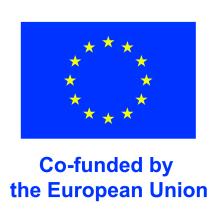A project for an inclusive approach to cultural collections description: For decades, archives, museums and other cultural heritage institutions in Europe have described and catalogued the historical objects in their collections from the perspective of privileged groups, traditionally excluding the views and knowledge of minorities and their community identity. In addition, once created, catalogue data are rarely updated to reflect changes in language and society. As a result, many object and collection descriptions that once fit into popular social narratives now convey outdated views that not only ignore and thus alienate a wide range of people, but in some cases use language that is offensive, inappropriate or even harmful. While cultural heritage institutions have become increasingly aware of these problematic shortcomings, updating the metadata in their legacy databases is a complex undertaking due to the sheer size and scope of their collections, lack of funding and, in many cases, a lack of knowledge about community identities and backgrounds.
The EU-funded DE-BIAS project, which started in January 2023 and will run for two years, promotes a more inclusive and up-to-date approach to describing cultural collections by developing a tool that automatically detects and flags offensive terms in five languages and provides information about their problematic background. To this end, the project will create vocabularies that combine offensive language with contextual information and suggestions for appropriate terms. These vocabularies will focus on three main themes: migration and the colonial past; gender and sexual identity; ethnicity and ethno-religious identity. In order to foster links between cultural heritage institutions and traditionally excluded minorities, DE-BIAS will engage in dialogue with relevant communities and involve them in the co-creation of a vocabulary that includes self-expressive language that reflects the identities of the respective communities.
The tool will be integrated in the Europeana website, as well as made available for use by individual archives, museums and other cultural heritage institutions to analyse and detect bias in their own datasets. With a wide range of capacity building resources to help archives understand, analyse and address bias in their collections, an online knowledge base and train-the-trainer courses, DE-BIAS guarantees long-term impact and adoption of the project’s results.
The project is led by DFF - Deutsches Filminstitut & Filmmuseum from Germany. The other consortium members are: Archives Portal Europe Foundation | ECCOM Centro Europeo per l’Organizzazione e il Management Culturale | Europeana Foundation | European Fashion Heritage Association | Katholieke Universiteit Leuven | Michael Culture Association | Ministère de la Culture et de la Communication | The Netherlands Institute for Sound & Vision and for the technical development and implementation: Datoptron | Thinkcode
DE-BIAS is funded in the Digital Europe Programme (DIGITAL) of the European Union.

 Deutsch
Deutsch English
English Čeština
Čeština Dansk
Dansk Français
Français Italiano
Italiano Lietuvių
Lietuvių Magyar
Magyar Nederlands
Nederlands Norsk
Norsk Português
Português Suomi
Suomi